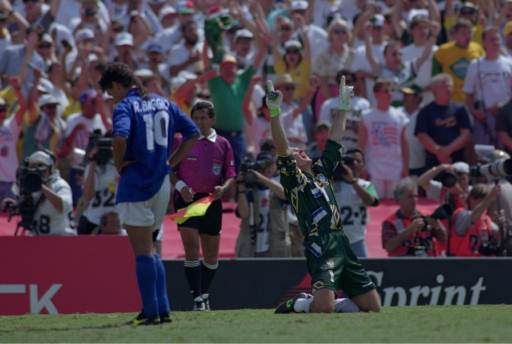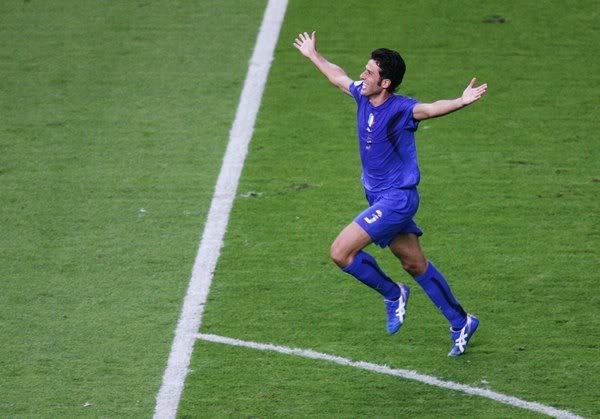Cross-posting this from
my other blog; apologies if you run across it twice.
Striker, Stopper: Two Novellas, Moti Nandy, translated by Arunava Sinha
There is a section in
A Season in Verona where Tim Parks imagines how the average footballer's career seems to be encircled practically from the outset by a tightening noose. In the opening paragraphs of his chapter 'Lecce' [noting this so that those of you who own a copy don't have to turn pages for hours trying to find it, the way I totally did not of course] he notes:
... By seventeen or eighteen they are playing in Serie C, or sitting on the bench in Serie B. Solemn men in heavy coats gamble on their future. They are bought and sold ... shunted up and down the length of the bel paese, Treviso, Taranto, Palermo, Turin. They know no one outside the world of football now. They hardly know what to say to a person who is not a player or a manager or a journalist. Or at least a fan. Is there anybody who is not a football fan? ...
The translator's dedication of these irresistible stories reads 'to East Bengal Club,' which satisfactorily answers the last question here. Parks came to mind as I read these novellas, written in 1970s Calcutta by Moti Nandy, veteran Bengali sports journalist - and novelist, and rendered into English beautifully and sympathetically by Arunava Sinha. One of them is about a young striker's future; the other hangs on an aging defender's past. And at what price? Football in the world of these novellas is not merely weighed in the balance against the civil opportunities of a regular life, like education and stability and honest relationships, all opportunities . No, what price the luxury of doing something you are born for, when families are starving - something Parks' young 21st century Italians have no notion of - and motherless children neglected for training? Nandy's stories evidently milked the problems of working-class Calcutta for all their worth, in narratives full of the drive and relish of great pulp. But those narratives also reflect a very Dickensian sense of righteousness and compassion for human dignity, and it resonates across the generations, across languages and cities.
But the sense comes by-and-by. Our heroes' stories are also full of screeching violins. The teenaged striker Prasoon refuses to buckle down to his little club Shobhabajar's demands, and so finds himself working a petrol pump on a night shift at one point, while he trains on his own in the hope of making it to a bigger club. And what should come rattling along the road one night but an Ambassador holding his teammates who have already sold out to the club's demands, now on their way to the India juniors training camp? Bring on the fricking orchestra, right? What about Kamal Guha's non-existent relationship with his teenage son, with the roots of its trouble in the fact that Kamal never made it back from a game on time to be with his dying wife? [And why not? The club held the telegram back because they needed him on the day. Oh yeah.]
The beauty of Nandy's writing is that it integrates these rather shopworn operatic conventions into a finely-wrought picture of the challenges of the sport: of how truly wearying and alienating the obsession can be, and how manipulative and traitorous the practice of it. Nandy's heroes actually do fight crime, in the form of Calcutta's abject football bureaucracy. Both novellas operate neatly within the real structure of the city's football: most of the action is set around two imaginary clubs, struggling relegation candidates Shobhabajar, and the mighty Juger Jatri, who are capable of running neck and neck with Mohun Bagan and East Bengal. Prasoon must lift himself from the scrabbling mediocrity of Shobhabajar to Jatri [a club where - drumroll - his father once played, and from which he was unfairly ejected after being accused of throwing a match]. Kamal Guha, who has descended from the heights of success with Jatri to a part-timer's role in Shobhabajar, must find a way to keep the club and himself afloat.
It is a corrupt world. The little clubs will fight to keep their best players from leaving, scrap and trade favours among themselves to stay afloat. The big ones will intimidate and bully the smaller ones for reasons of their own. Perhaps inescapably, the journeys of both young man and old mirror each other. If Prasoon, with all his ambition and integrity, must learn to be selfish - so selfish that he must eat even when his family cannot - then Guha's quest is that of a man who already knows that all things come to pass, and must sacrifice to achieve them anyway.
As someone says in Parks' book, 'How can you pay for something you hate so much?' But we know football can be grim - there's a living history that tells us so. We read it between the lines in stories of inflated salaries and dream moves. We may even experience it, in a minuscule way, when we participate in that grand ideal of suffering for the game from the stands. Melancholy and football joined hands, after all, around the first time someone decided to pass instead of dribble. Perhaps that is how the conventions of the happy ending in both novellas achieve a note of transcendence. Football still has the power to transform bitterness into joy - and it is extraordinary how steadfast that matter of belief can be. Perhaps the more mired it is in the sordid, the greater its evocation of romance, of a higher logic that can render all accounts balanced and all stories completed. It is a belief that can illuminate not just its honest and proud adherents, but the game itself. The joy of Nandy's stories is not the joy of winning a match - it is the deeper, steadier feeling that comes of looking at the league table at the end of the season, and finding your team where you want them to be.

* - I chose these pictures in spite of the fact there's a moment in one of the stories where a manager flies into a rage because a player suggests they play with a sweeper. 'You want me to play catenaccio!' he squawks. I thought it was sublime.



